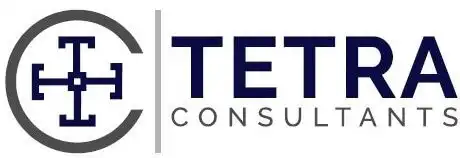4 Accounting and Tax Obligations to Know Before You Set up Company in Ireland

Contact Us
Deciding on which countries to expand your business to can be a complex and difficult decision. As an aspiring entrepreneur, you might have heard of the lucrative business environment of Ireland and might be wondering about any accounting and tax obligations to be aware of before choosing to set up company in Ireland. In this article, Tetra Consultants will offer insights into the 4 key accounting and tax obligations to consider before making the decision to set up company in Ireland so that you may better understand this business phenomenon and make a more informed decision about whether you should register company in Ireland.

Tax Rates
Firstly, in order to identify the percentage of a company’s profits subject to taxation, one must differentiate between two key types of companies – domestic Irish resident companies or foreign non-resident companies. A domestic company is identified based on 3 key metrics: a) the business is incorporated in Ireland, b) the firm conducts business and carries out commercial activities in Ireland or manages and controls business initiatives from Ireland, and c) voting power is controlled by Irish resident shareholders.
After the type of business is identified, for firms which constitute resident companies, the worldwide income for the business is completely subjected to the Irish corporate income tax rate of 12.5%. In contrast, for businesses identified as foreign ones, only their Irish-sourced income is subjected to this tax rate. This includes the branch operations of international businesses operating within the country of Ireland.
Additionally, there are a variety of other forms of taxes actively enforced on Irish businesses. Withholding tax is levied on any dividends paid, while the tax rate being equal to that of the standard corporate income tax rate. However, the presence of any tax treaties and benefits could reduce the withholding tax rate for the payment of dividends. Such withholding taxes are similarly imposed on other types of financial transactions such as the interest payments made by an Irish business to non-Irish individuals. In fact, this withholding tax rate of 20%.
Meanwhile, the standard capital gains tax rate is 33%. However, there are 3 key outliers to this standard tax rate imposed on capital gains. When it comes to foreign investment products or insurance policies, there is an even higher tax rate of 40% imposed. Yet, when it comes to financial firms such as venture capital funds set up by individuals or partnerships, the capital gains tax rate imposed is much lower, at 15%. In fact, for the very same funds set up by corporations, the capital gains tax rate is even lower, at 12.5%.
Last but not least, capital stock and marketable securities are subjected to a stamp duty rate of 1%. For other common types of property, the stamp duty imposed is slightly higher, at 2%. Thus, there are a variety of tax rates imposed one has to be mindful of when opting to set up company in Ireland.
Value Added Tax (VAT) Rates
On top of the list of different taxes levied on businesses covered above, your firm is required to engage in VAT registration based on yearly sales and revenue projections. If your forecasted values for the supply of goods and supply of services both exceed the amount of $75000 Euros, this VAT registration is a mandatory tax obligation for all businesses.
For most industries, the standard VAT rate was recently hiked in March 2021, from 21% to 23%. However, for specific industries such as tourism and hospitality industries, the VAT rates imposed are lower, at 13.5% and 9% respectively. Additionally, it is mandatory to file your business’ VAT returns twice every month.
Tax Credits and Incentives
As a country which ranks amongst the top 10% in ease of conducting business, Ireland offers a favourable economic environment with multiple tax incentives. For instance, there is a tax credit of 25% for the total value of expenditure by a business determined by the government as engaging in Research and Development (R&D) activities. This credit is layered on top of the 12.5% revenue deduction offered to R&D expenditure, thus adding up to a corporate tax benefit of 37.5%. Additionally, the Knowledge Development Box initiative also offers a 6.25% corporate tax rate to be imposed on earnings obtained from R&D assets. These assets include digital computer programmes, innovations with clear patent protections, as well as the Intellectual Property (IP) for companies smaller in scale.
However, apart from tax credits, many treaties also exist within the country of Ireland. For example, the tax on foreign income dividends can be exempted if the foreign subsidiary meets two main criteria. Firstly, it qualifies as a tax resident within a country Ireland has signed treaties with, or within the European Union (EU). Secondly, if these dividends are paid out of the profits earned from trading by the subsidiary, which was already subjected to the existing corporate income tax rate or withholding tax rates.
Additional Accounting and Auditing Obligations
The filing of Ireland’s tax returns is a relatively straightforward process, with one being able to submit all of the relevant documents and information virtually. The process of filing annual returns is mandatory for all businesses incorporated in Ireland.
However, there are certain key exemptions offered to specific types of businesses operating in Ireland, predominantly small to medium enterprises (SMEs). For companies smaller in scale, if they satisfy a minimum of 2 of the following criteria, they are exempted from the auditing of annual financial statements. The 3 requirements are a) an annual turnover smaller than 12 million, a balance sheet total of less than 6 million, and c) an employee number smaller than 50.
A similar exemption is offered to medium sized companies which have to meet 2 out of the following 3 requirements as well: a) an annual turnover smaller than 40 million, a balance sheet total of less than 20 million, and c) an employee number smaller than 250.
Conclusion
Navigating a new country’s different and unique business climate might be a challenging process – a hassle to say the least. However, with a relatively tax friendly environment and credits/treaties outlined above, it is easy to see why many entrepreneurs will choose to set up company in Ireland. As such, Tetra Consultants hopes that this article has provided you a much better understanding about 4 key accounting and tax obligations to consider before making the decision to set up company in Ireland so that you can truly decide on whether you should register company in Ireland yourself.
So, what are you waiting for? Contact us to find out more about the process of starting a business in Ireland, and our dedicated and experienced team will respond within the next 24 hours. Tetra Consultants will not only empower you by helping to navigate the different regulations of Ireland, but also aid in facilitating the registration of your company there while providing invaluable, nuanced insights into any potential challenges.
Tetra Consultants
Tetra Consultants is the consulting firm that works as your advisor and trusted partner in your business expansion. We tell our clients what they need to know, instead of what they want to hear. Most importantly, we are known for being a one-stop solution for our valued clients. Contact us now at enquiry@tetraconsultants.com for a non-obligatory free consultation. Our team of experts will be in touch with you within the next 24 hours.





